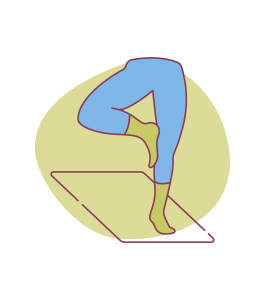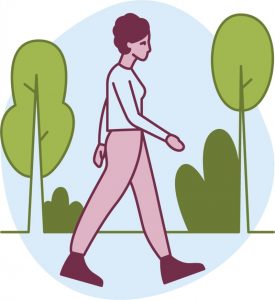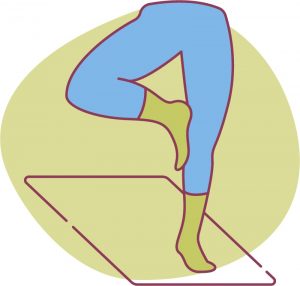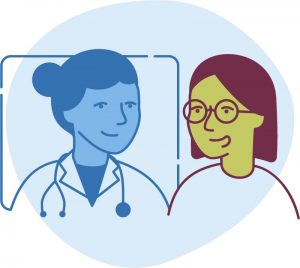Downloaded from www.mymenopausecentre.com
Direct URL: https://www.mymenopausecentre.com/case-studies/breast-cancer/
Navigating breast cancer and the menopause with Cath
Here's one example of how menopause symptoms can be treated when you have or have had breast cancer, or have gone through or are going through chemotherapy.
Explore

Cath’s story before seeing Dr Clare Spencer

Cath* had already been through the menopause naturally when she was 53. Her periods stopped and she experienced some of the classic symptoms of the menopause like hot flushes and mood swings. She managed her symptoms through exercise, and a fan in her room and by her desk at work kept her cool for the most part. Her symptoms gradually settled.
Sadly, four years after her last period, just as she felt life was getting back to normal, Cath was diagnosed with breast cancer. She had discovered that her right breast texture had changed, and she could feel a small breast lump. She immediately went to see her GP who referred her urgently to the breast clinic.

Breast changes to look out for
Cath was treated with an excision of the lump, radiotherapy and then anastrozole, an aromatase inhibitor that prevents the conversion of testosterone/androgens – male hormones which are naturally found in women – into oestrogen.
Her menopause symptoms came flooding back. But this time they felt worse. She found the hot flushes particularly difficult to cope with as they kept her awake most nights, leaving her feeling tired and worn out.
Cath felt anxious about her health and felt angry that cancer had affected her.
Lack of sleep, particularly, was affecting every aspect of her life, and was a constant reminder of her breast cancer, even though her treatment had so far been successful.
A holistic treatment plan for Cath
Cath consulted our Co-Founder, Dr Clare Spencer. Clare was able to reassure Cath that that there were treatments available to help.
Together, Clare and Cath put together a plan of action for managing her night sweats, starting with lifestyle tweaks such as reducing her consumption of caffeine and alcohol. Like many women, Cath had begun drinking more wine in the evenings to try to help her sleep. What she didn’t realise was that alcohol can make night sweats and sleep problems worse.
Clare discussed Cognitive Behavioural Therapy with Cath, and provided some reading material to help her develop ways of thinking to break the cycle of lack of sleep and night sweats. Cath could see the benefits and booked some time with a therapist trained in CBT. She found it helpful to work through some of her thoughts and feelings about her breast cancer and hot flushes with one-on-one therapy.
the benefits and booked some time with a therapist trained in CBT. She found it helpful to work through some of her thoughts and feelings about her breast cancer and hot flushes with one-on-one therapy.
Click here to find out more about our CBT partners, Sue and Claire. 
Clare also recommended yoga and relaxation which Cath could access through the cancer care unit at her hospital. Joining a yoga group online and practising relaxation brought her further benefits.
Clare discussed prescribing non-hormonal medication that can help manage menopause symptoms. Clonidine is one of these options. It’s a medication that is used for managing blood pressure that can also help to reduce hot flushes. Another alternative would have been to take an antidepression tablet which can also take the edge off hot flushes for some, and help some of the mood symptoms she was experiencing. Cath found that she didn’t need medication as the techniques taught in her CBT sessions helped her get four or five hours of unbroken, restorative sleep each night.
She understood that there were medication options that she could try in the future and that she could contact the clinic to book another appointment to discuss different treatments whenever she wanted.
Listening goes a long way
For Cath, simply being listened to made an enormous difference. The emotional fallout of her diagnosis made her feel isolated and she had the additional impact of the return of her menopause symptoms to deal with. She felt as though she wasn’t coping with the menopause as well as her friends. It was a relief to hear that what she was experiencing was common in women who had been through breast cancer treatment, and that she wasn’t alone
She felt really positive about the fact that there were options to help control her symptoms that were controlling her life, and it was so easy to access different forms of therapy through one clinic.
How can My Menopause Centre help you?
Perhaps your story is like Cath’s, or maybe it’s completely different. The important thing to remember is that everyone experiences the menopause in their own way.
If you’re unsure about the signs, you can read about the menopause symptoms, take our Menopause Questionnaire or book a consultation with one of the doctors in our menopause clinic.
*While Cath herself is fictional, her story reflects the experience of many women treated for breast cancer while in the menopause transition.
Join the pause. community
We’ve created pause. as a space for women to come together and share stories about their menopause experience, ask questions, and to find support and inspiration. We'll also share the latest news and updates on the menopause from our experts.
Want to be the first to hear our latest news? Join our pause. community today.
Share your email to receive the latest news, updates and information on new products and treatments from My Menopause Centre and our pause. community. You can unsubscribe at any time.
We're committed to protecting and respecting your privacy - see our Privacy Policy and Terms and Conditions

Book a consultation
Whether you want to discuss your symptoms, create a treatment plan that's right for you, understand some test results or have a check-up, the highly experienced doctors and nurses in our menopause clinic are here to help you.
Book nowContact My Menopause Centre
- General enquiries: hello@mymenopausecentre.com
- Book appointments online: Log into your account and go to 'My appointments'
- Book appointments by phone: 0333 444 1067
- Website: https://www.mymenopausecentre.com


















